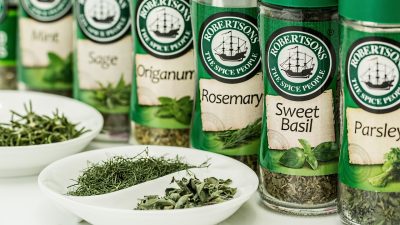Natural Remedies for Digestive Issues: Simple Solutions
Digestive issues are among the most common health complaints, affecting millions of people worldwide. From bloating and heartburn to constipation and diarrhea, these problems can interfere with daily life and overall well-being. While over-the-counter medications can provide relief, natural remedies offer gentle and effective solutions without the risk of side effects. In this blog post, we’ll explore several time-tested natural remedies that can help alleviate common digestive issues and improve gut health.
Ginger: The Universal Digestive Aid
Ginger has been used for centuries as a natural remedy for a variety of ailments, particularly digestive discomfort. Its active compounds, gingerols and shogaols, have powerful anti-inflammatory and anti-nausea properties. Ginger is particularly effective for relieving nausea, bloating, and indigestion. Studies have shown that ginger can also speed up the emptying of the stomach, which is helpful for those suffering from dyspepsia or sluggish digestion.
Incorporating ginger into your diet is simple. Fresh ginger can be grated into teas, soups, or stir-fries, while powdered ginger is a convenient option for smoothies and baked goods. For targeted relief, sipping on ginger tea or chewing a piece of candied ginger after meals can work wonders.
Peppermint: Soothing for the Stomach
Peppermint is another potent remedy for digestive issues, especially for conditions like irritable bowel syndrome (IBS). The menthol in peppermint relaxes the muscles of the gastrointestinal tract, reducing cramping and spasms. It’s also effective in relieving symptoms like gas and bloating.
Peppermint tea is a popular way to harness its benefits. Simply steep fresh or dried peppermint leaves in hot water for a few minutes and enjoy after meals. For more targeted relief, peppermint oil capsules are available and are particularly beneficial for those with chronic digestive problems. However, individuals with acid reflux should use peppermint with caution, as it can sometimes exacerbate symptoms.
Apple Cider Vinegar: Balancing Stomach Acidity
Apple cider vinegar (ACV) is a versatile natural remedy that can aid digestion by increasing stomach acidity. Low stomach acid is a common cause of bloating, indigestion, and nutrient malabsorption. By enhancing the acidic environment of the stomach, ACV helps break down food more efficiently and promotes the absorption of nutrients.
To use ACV for digestion, mix one to two teaspoons in a glass of warm water and drink it before meals. Adding a touch of honey can improve the taste. Be mindful to dilute ACV properly to protect your tooth enamel and avoid overuse, as excessive consumption can irritate the stomach lining.
Probiotics: Supporting Gut Health
Probiotics are beneficial bacteria that play a critical role in maintaining a healthy digestive system. They help balance the gut microbiome, improve digestion, and reduce symptoms of conditions like diarrhea, constipation, and IBS. Probiotics are naturally found in fermented foods such as yogurt, kefir, sauerkraut, kimchi, and miso.
For individuals who struggle to get enough probiotics from their diet, supplements are an excellent alternative. Look for a high-quality probiotic with diverse strains and a sufficient colony-forming unit (CFU) count. Regularly consuming probiotics can lead to noticeable improvements in overall digestive health.
Fennel Seeds: A Traditional Remedy for Gas and Bloating
Fennel seeds have long been used in traditional medicine to alleviate digestive discomfort. Their carminative properties help expel gas from the digestive tract, reducing bloating and cramping. Fennel seeds also have antimicrobial properties, making them beneficial for addressing mild digestive infections.
Chewing a small amount of fennel seeds after meals is a simple and effective way to promote digestion. Alternatively, you can brew fennel tea by steeping crushed seeds in hot water for 5-10 minutes. Adding a dash of honey or lemon enhances the flavor and provides additional health benefits.
Dietary Fiber: The Cornerstone of Digestive Health
A diet rich in fiber is essential for maintaining regular bowel movements and preventing constipation. Soluble fiber, found in foods like oats, apples, and flaxseeds, absorbs water and forms a gel-like substance, softening stools and easing their passage. Insoluble fiber, found in whole grains, nuts, and vegetables, adds bulk to stools and promotes regularity.
To increase your fiber intake, aim to include a variety of fruits, vegetables, legumes, and whole grains in your diet. Remember to drink plenty of water, as adequate hydration is necessary for fiber to work effectively.
Final Thoughts
Natural remedies for digestive issues offer safe, effective, and sustainable solutions for improving gut health. By incorporating these remedies into your routine, you can address common digestive problems without relying heavily on medications. Remember, persistent or severe symptoms should always be evaluated by a healthcare professional. A balanced diet, regular exercise, and stress management are also vital components of a healthy digestive system. Start with these simple solutions and take charge of your digestive health today.






